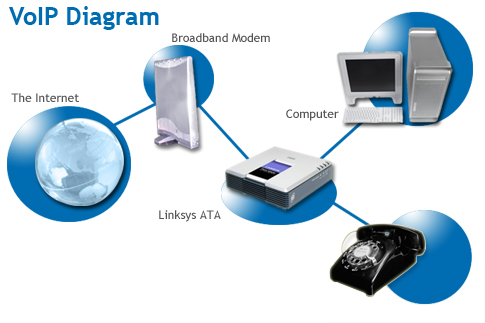Voice over Internet Protocol (VoIP) is an umbrella term used to describe some of the most rapidly budding technology in the telecommunications industry. Juxtaposed to the public switched telephone network (PSTN), VoIP has surpassed the conventional hard-line office telephone systems in practicality and cost. However, some SMB’s are likely reluctant to switch over due to security and congestion concerns. Like cloud computing and storage, protection is the prime concern though it is important to note that as VoIP increases in sophistication, so too does security.

Why use VoIP
Whether used for business or for leisure, VoIP technology is sensible and convenient. The idea behind it, simply stated, is that one can transmit speech across data-style networks. This means that a company can consolidate all voice, audio, and internet traffic over a single network. This, in turn, gets telecommunications providers to supply higher bandwidth, more common do data, which allows for higher speeds. By using this single network system, it is cost effective in that you only pay for that network.

The VoIP equipment is equally as impressive as the communication system it’s used to function for. From telephone handsets with conference call capability to conferencing units with LCD screens for browsing or directory searching, a significant benefit to VoIP’s is that one can communicate over the internet with audio as well as utilize visual display on a computer monitor.
Concerns
As with any technology, there are security risks involved when dealing with VoIP. The biggest concern is hacking. Unlike PSTN where hackers need physical access to a hard-line, VoIP can be accessed through the network that contains not only data, but your actual voice too. Hackers could tamper with private calls, reroute messages, and contaminate networks with spam. Fear of tampering with privileged information can cost time, money, and peace of mind but there are numerous firewall and encryption fortifications used by providers, as well as implementing the up-to-date standards and protocols (802.11, 802.11b, 802.11i) required of all wireless services.
Speed is often also an issue. While I mentioned above that consolidating all traffic over one network could increase higher bandwidth, it is not a guarantee. If the telecommunications provider does not increase the bandwidth, then the network could become clogged with all of the voice, audio, and data it is used for. However, this is an easy fix as broadband providers can be found easily and for cheap, sometimes even free.
When it comes to VoIP, sure there are risks. But there is little out there that will help you or your company run smoother for less cost.
Sources:
http://www.voipsa.org/
http://www.silicon.com/legacy/research/specialreports/voipsecurity/0,3800013656,39166479,00.htm
http://www.silicon.com/silicon/networks/telecoms/0,39024659,39166244,00.htm
http://en.wikipedia.org/wiki/IEEE_802.11i-2004
